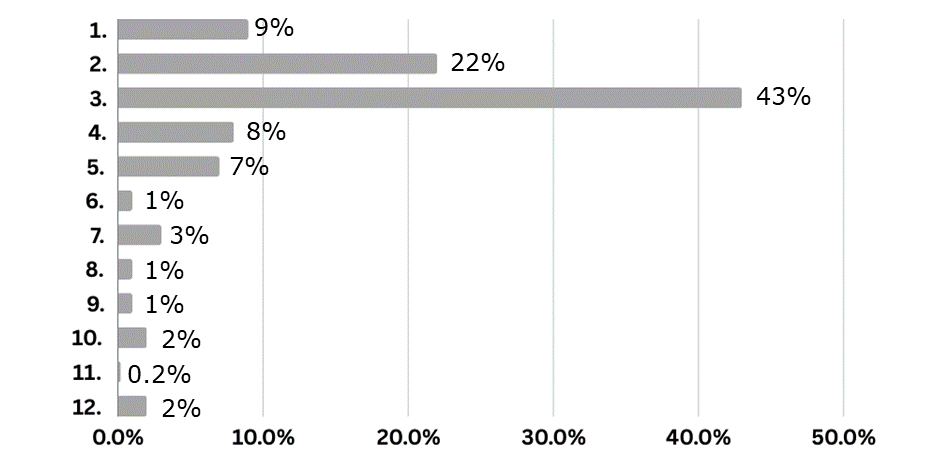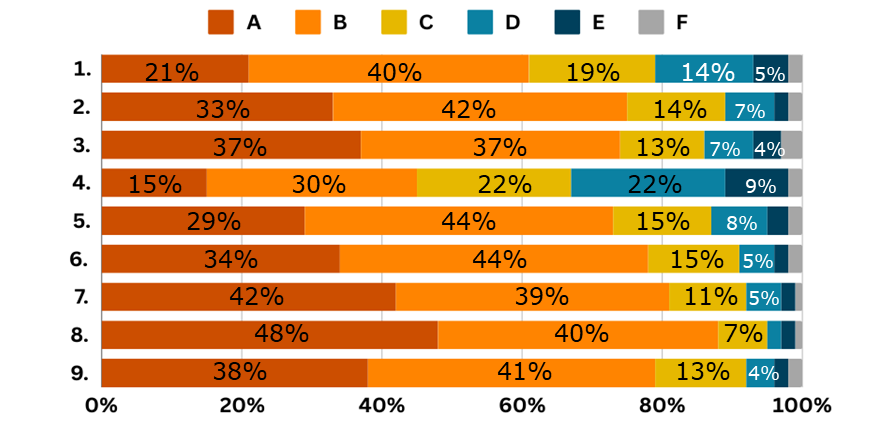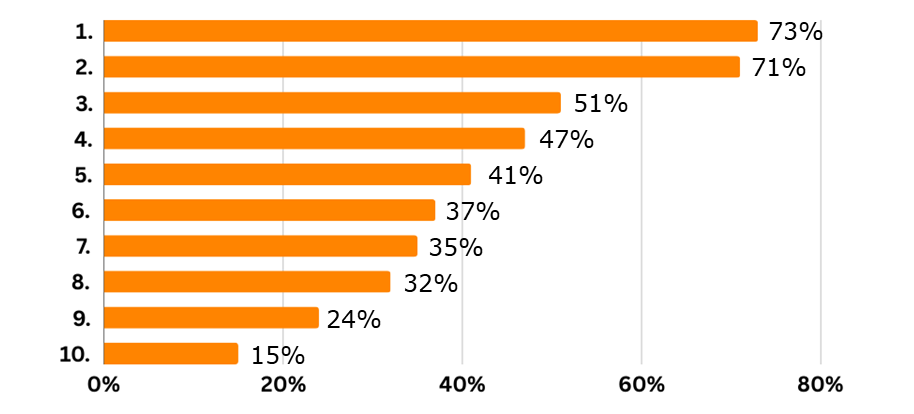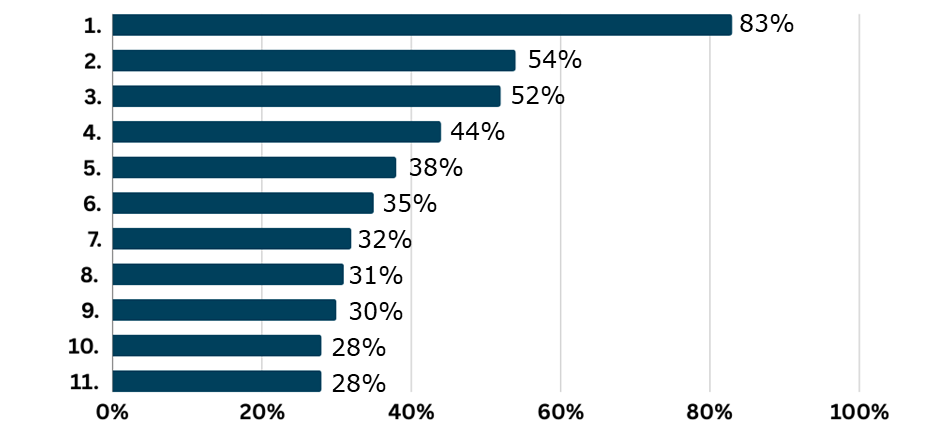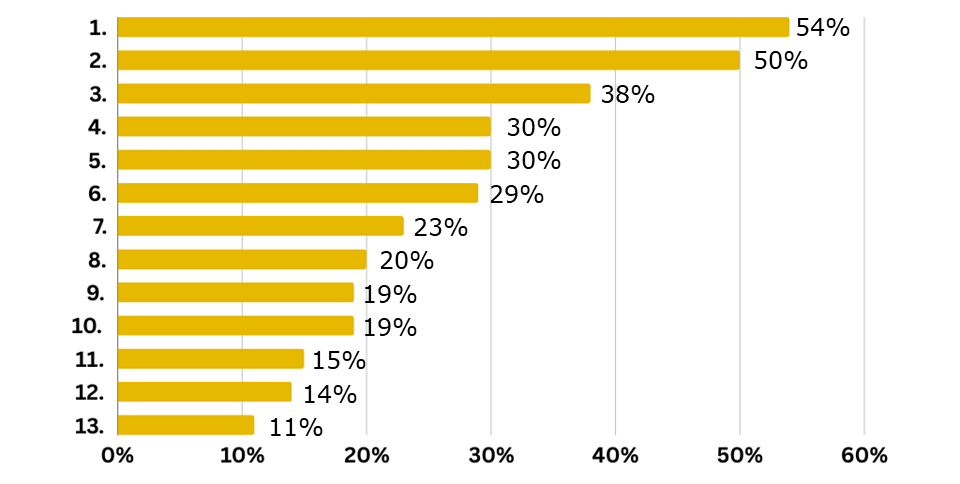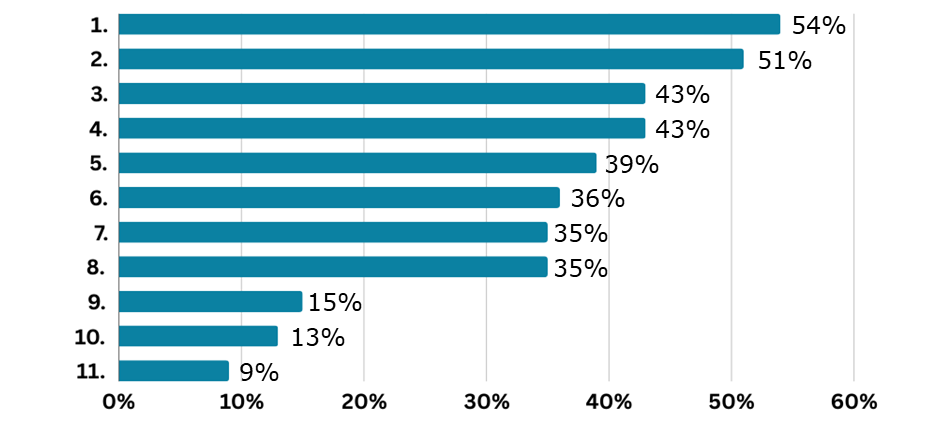Survey on promoting education for sustainability
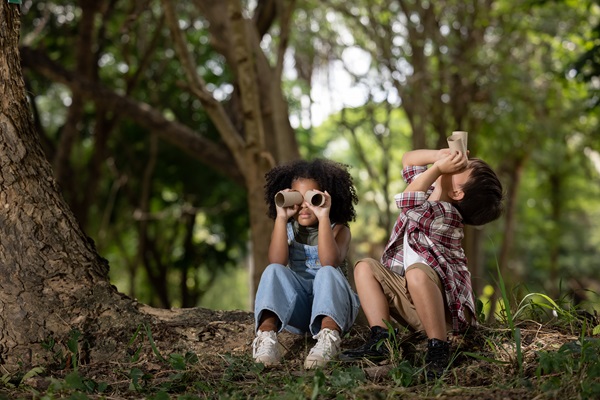
Education for sustainability tackles issues such as climate change, sustainable transportation, cultural preservation and features increasingly in national and EU level education policies and actions.
The 2022 Council Recommendation encourages the inclusion of ‘learning for the green transition and sustainable development as one of the priority areas in education and training policies and programmes.’
GreenComp, the European sustainability competence framework, aims to equip both educators and learners with the knowledge, skills and attitudes needed to live more sustainably through changing patterns of consumption and production, by embracing healthier lifestyles, and contributing to a more sustainable economy and society.
The survey gathered 863 responses from platform visitors, most of whom were primary and secondary school teachers from Italy, Spain, Türkiye and Romania.
Which of the following best describes your role?
- Teacher – early years education
- Teacher – primary education
- Teacher – secondary education
- Teacher – vocational education
- School head
- National, regional or local authority
- Teacher educator/trainer
- Education policymaker
- Parent
- In-school support (e.g. school librarian, career counsellor)
- External practitioner (visiting schools)
- Other educational professional/stakeholder
1 – To what extent do you agree or disagree with the following statements regarding education for sustainability in your school or a school you know?
A significant majority of respondents consider that education for sustainability fosters values such as responsibility, stewardship and resilience (88%), and addresses issues beyond climate change (81%). Most agreed that education for sustainability encourages community engagement and collaboration (79%), and promotes discussions about social justice and equity (78%).
For most respondents, education for sustainability is integrated into extracurricular activities and projects (75%), the curriculum (61%, mainly in a cross-curricula way) and the school’s development plan (74%). Nevertheless, a significant proportion of respondents (45%) felt that it is inadequately or ineffectively covered in lessons.
A. Totally agree / B. Agree / C. Neither agree nor disagree / D. Disagree / E. Totally disagree / F. I don’t know
Sustainability education…
- is already an integral part of the curriculum.
- is integrated into extracurricular activities and projects.
- is part of school’s development plan and vision for the future.
- is inadequately or ineffectively covered in lessons.
- is taught in a cross-curricular way.
- promotes discussions about social justice and equity.
- addresses global challenges beyond climate change (e.g. social inequality or food security).
- fosters values such as responsibility, stewardship and resilience.
- encourages collaboration with the local community.
2 - Thinking of your school or a school you know, select all options that the school provides for promoting sustainability through the curriculum and extra-curricular activities.
The main ways that sustainability is included in the curriculum and extra-curricular activities are through field trips and outdoor activities related to environmental conservation and sustainability (73%). Projects and assignments across diverse subjects (71%) and/or cross-curricular integration (51%) are other popular means.
Respondents’ schools also have teacher-led environmental education clubs or activities (47%), or guest lectures or workshops by sustainability experts (45%). The two least frequently reported ways are pupil-led initiatives or clubs (24%) and assessment of pupils’ sustainability competence (15%).
- Field trips or outdoor activities related to environmental conservation and sustainability.
- Projects or assignments that focus on sustainability issues across various subjects.
- Incorporating elements from science, social studies, economics and other subjects.
- Teacher-led environmental education clubs or activities.
- Guest lectures or workshops by sustainability experts.
- A nominated teacher/taskforce coordinating sustainability issues.
- Opportunities for community service or volunteering related to sustainability.
- Dedicated sustainability courses or modules integrated into the curriculum.
- Pupil-led initiatives or clubs addressing local or global sustainability issues.
- Assessing pupils’ sustainability competence (e.g. based on GreenComp).
3 - Thinking of your school or a school you know, select all sustainability measures that it has implemented.
Regarding the sustainability measures implemented in schools, the survey revealed that recycling (83%), tree planting (54%) and community gardens or other green space initiatives (52%) are the most prominent ones. Additionally, measures like reducing single-use plastics, collaborating with local environmental organisations or businesses, and promoting sustainability though taskforces/councils of teachers and/or students were moderately used (responses ranging from 35% to 44%).
Less frequent measures opted by schools were sustainable transportation options/campaigns (30%), energy conservation projects (28%) and sustainable food options in the school cafeteria (28%).
- Recycling of paper, plastic, glass and other materials.
- Tree planting, rewilding or reforestation projects.
- Community garden or green space initiatives.
- Reduction of single-use plastics on campus.
- Partnerships with local environmental organisations or businesses.
- Taskforce/council of teachers and/or students to promote sustainability.
- Informing and engaging parents regarding sustainability.
- Composting initiatives for food waste.
- Sustainable transportation options/campaigns for pupils and staff (e.g. biking, walking).
- Energy conservation projects or programmes, e.g. net zero plans.
- Sustainable food options in the school cafeteria, e.g. organically or locally produced
4 - In your view, what are the main challenges that affect the teaching of sustainability in schools?
Survey responses indicate that the main challenges affecting sustainability teaching in schools are lack of time (54%), prioritisation of other academic subjects over sustainability education (50%) and insufficient guidance or suitable teaching resources (38%).
Insufficient support from school leadership (15%), teachers’ prejudices and pre-conceptions (14%) and a lack of confidence in teaching sustainability (11%) were indicated as challenges by far fewer respondents.
- Not enough time.
- Prioritisations of other academic subjects over sustainability education.
- Insufficient guidance or suitable teaching resources.
- Teachers’ lack of interest.
- Lack of initial teacher education on sustainability topics.
- Lack of a formal requirement to teach sustainability.
- Lack of professional development opportunities for teachers on sustainability topics.
- Difficulty in assessing pupils’ sustainability competence.
- Parents’ prejudices and pre-conceptions.
- Lack of collaboration and partnerships with external organisations/experts.
- Inconsistent or insufficient support from school leadership.
- Teachers’ prejudices and pre-conceptions.
- Lack of confidence in teaching sustainability concepts and topics.
5 - In your view, which strategies can best help make education for sustainability more effective?
Regarding the strategies to make education for sustainability more effective, the responses indicate a preference for hands-on activities (54%), and field trips and volunteering at eco-friendly sites (51%). These are followed by collaboration with local community members/organisations and the provision of resources and support for teachers to integrate sustainability into their lesson plans (both 43%).
Debates, educational apps/software and virtual simulations were least mentioned as effective strategies (responses ranging from 9% to 15%).
- Hands-on activities like gardening, recycling or energy projects.
- Field trips or volunteer work at eco-friendly sites or sustainability-focused organisations.
- Collaborating with local community members or organisations on sustainability initiatives.
- Resources and support for teachers to integrate sustainability into their lesson plans.
- Research/science projects with pupils to solve real local sustainability issues.
- Interdisciplinary courses specifically focused on sustainability.
- Professional development for teachers on sustainability topics.
- Virtual exchanges (e.g. eTwinning projects) with pupils from different countries.
- Organising debates to discuss and propose solutions to sustainability-related policy issues.
- Using educational apps or software that focus on sustainability education
- Virtual simulations or interactive learning experiences using online platforms and tools.
Main takeaways
The survey reveals strong support for education for sustainability. It not only fosters values such as responsibility, stewardship and resilience, but also encourages broader action beyond tackling climate change. As such it has a pivotal role in strengthening the development of environmentally conscious citizens.
Moreover, the emphasis on community engagement, cross-curricular integration and the inclusion of sustainability in school development plans shows that schools take a holistic approach to embedding sustainability principles in educational practices.
Education for sustainability can support multidisciplinary approaches involving field visits and project work. Respondents’ schools encourage recycling, tree planting, green space initiatives, and to some extent, reducing the use of plastics.
However, there are certain weaknesses and challenges such as inadequate or ineffective coverage of the topic in lessons, time constraints, competing academic priorities, and a lack of guidance and resources. Developing the competences set out in GreenComp can be achieved by addressing these challenges and strengthening the effective strategies identified.
Additional information
-
Education type:Early Childhood Education and CareSchool EducationVocational Education and Training
-
Target audience:TeacherStudent TeacherHead Teacher / PrincipalTeacher EducatorCompany staffGovernment staff / policy makerResearcherHigher education institution staffNot-for-profit / NGO staffParent / Guardian
-
Target audience ISCED:Early childhood education (ISCED 0)Primary education (ISCED 1)Lower secondary education (ISCED 2)Upper secondary education (ISCED 3)

